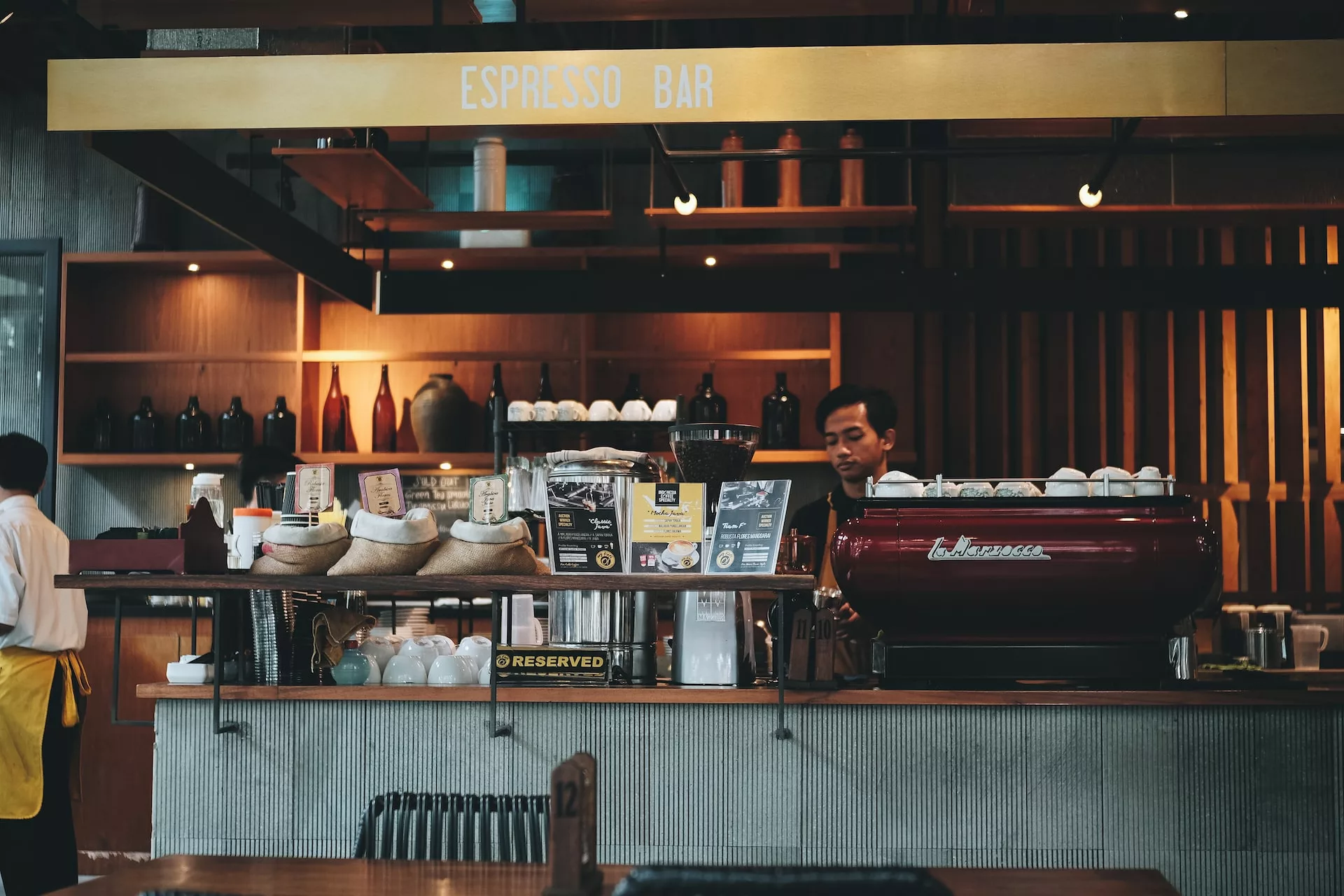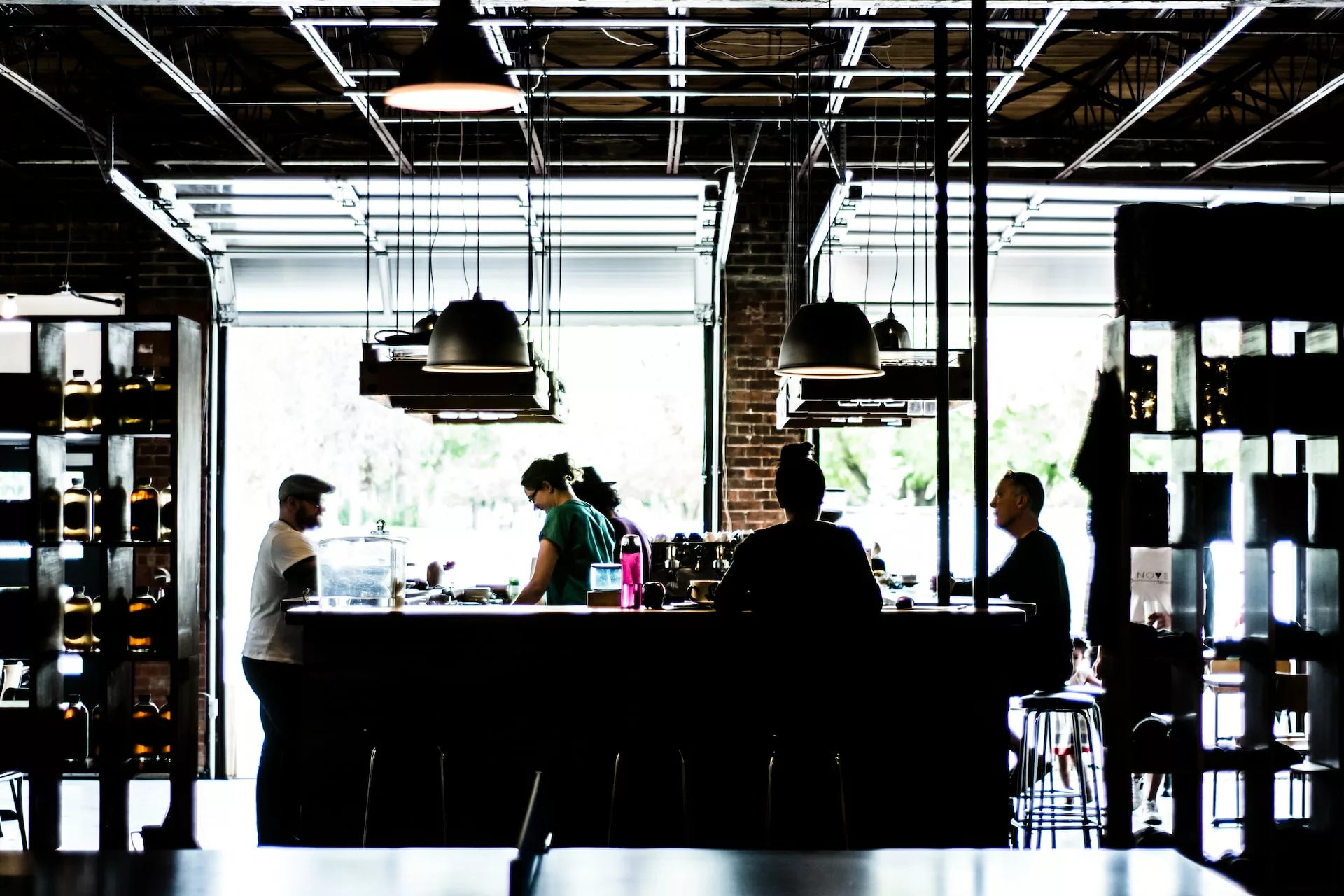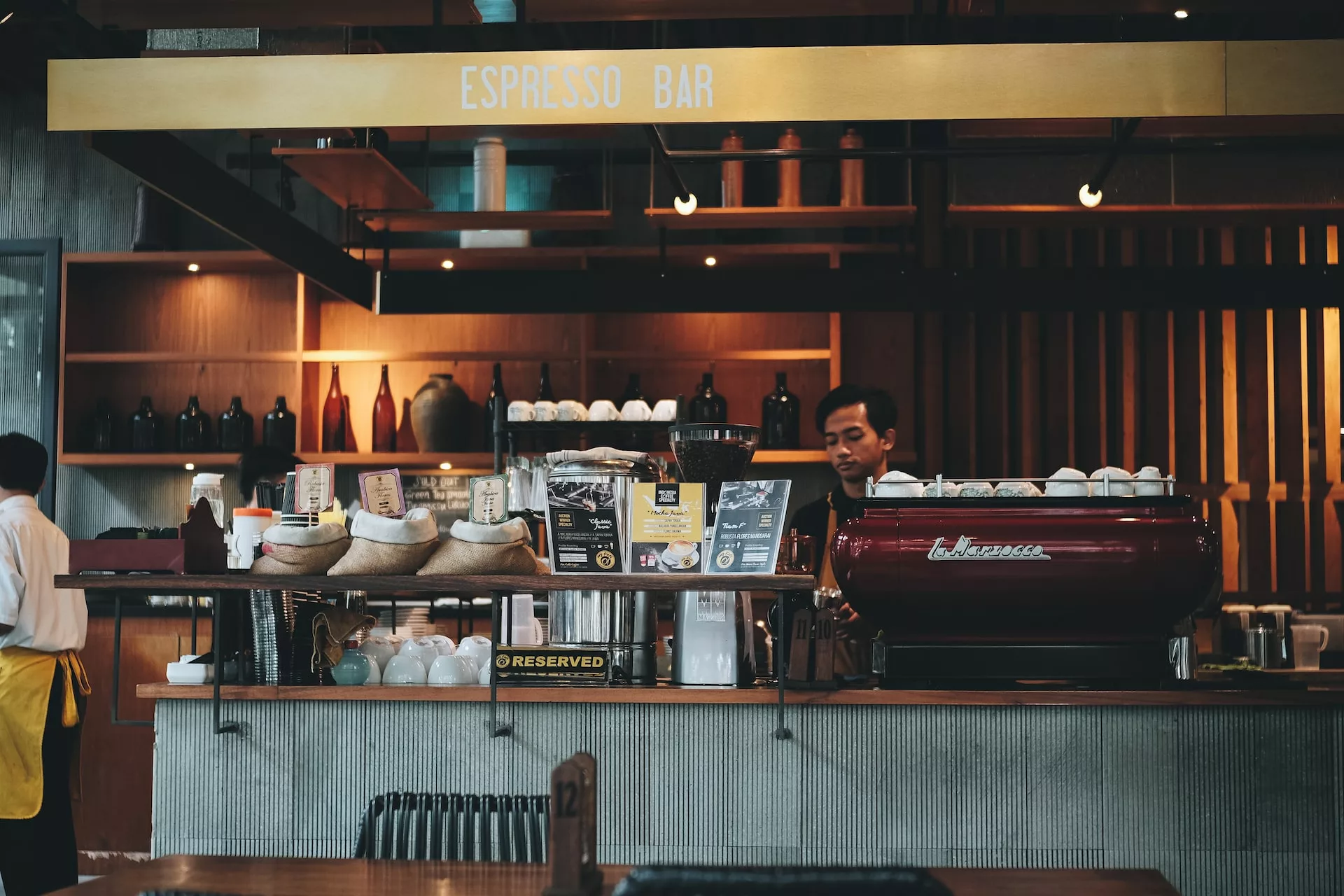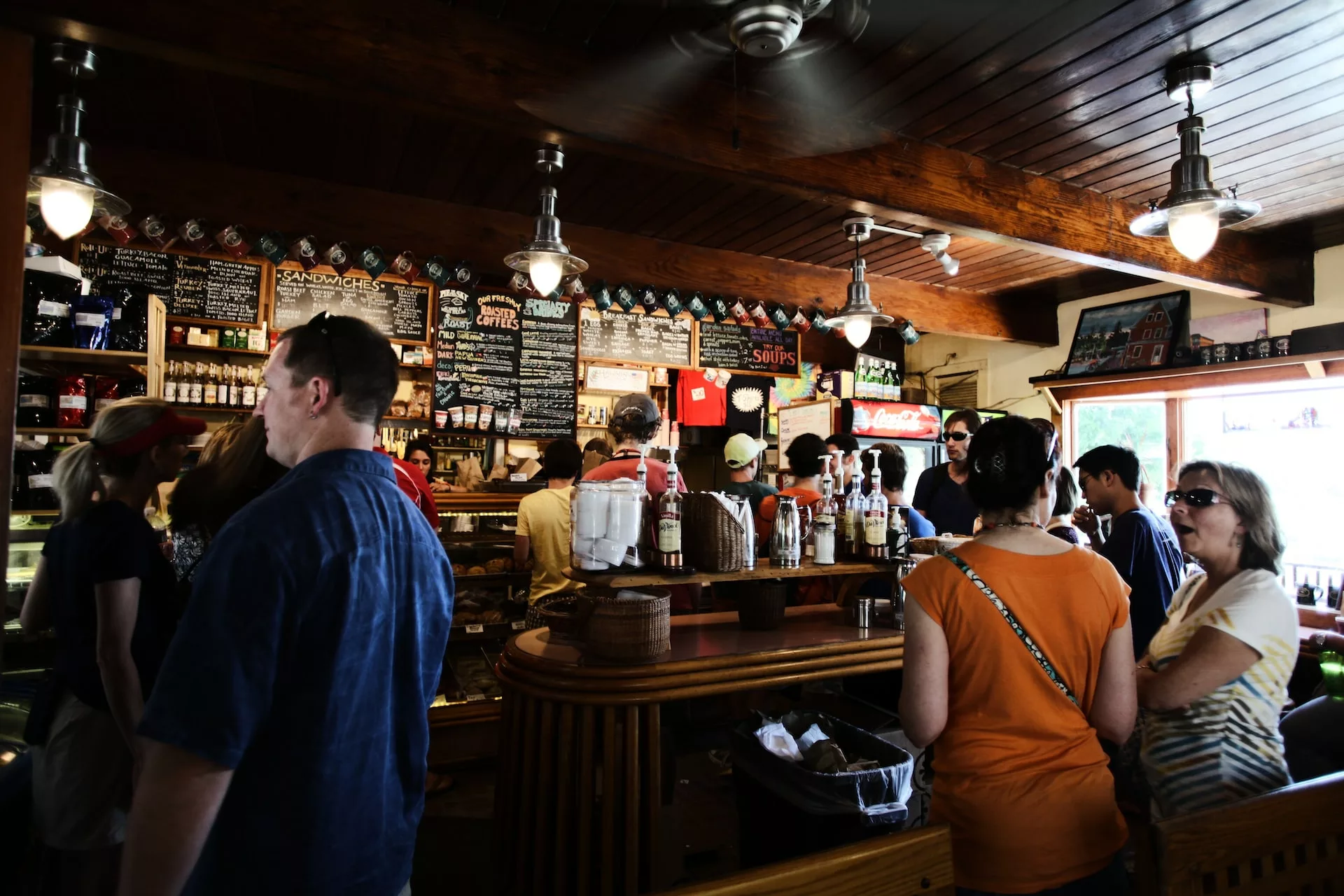Are you considering starting a coffee shop but want to know if it’s profitable? You’re in luck! In this blog post, we’ll break down how a coffee shop can be profitable and take an in-depth look at the potential costs and benefits associated with opening such a business. By reading through our guide, you’ll have all of the necessary information to make an informed decision about whether or not your own coffee shop could become a successful endeavor.
What goes into a coffee shop’s overhead costs
Opening up a coffee shop can be a thrilling and rewarding experience, but it’s important to understand and prepare for the overhead costs associated with the venture. All businesses require a basic set of supplies to operate, and while they vary from shop-to-shop, there are some common overhead expenses that all coffee shops must consider.
When budgeting for overhead costs, it’s essential to have an understanding of the various departments in your business. Generally speaking, these departments can include: rent/mortgage payments, labor expense, utilities and maintenance, as well as debt payments (if any). Let’s look at each area individually to get a better sense of what goes into running a successful coffee business.
Rent or mortgage payments are generally one of the largest expenses for any business – especially if you operate out of a physical location rather than exclusively online. The size of the space you choose will depend on how many customers you’re expecting to serve during peak hours as well as how much equipment you need to stock within the store itself. To keep operating costs down, it’s always good practice to search around for different rental rates or negotiate better terms with your current service provider.

Labor is another key factor in setting up shop. You’ll need baristas who know how to properly craft different types of coffees and teas – not only correctly preparing drinks according to customer preferences but also adhering to food safety guidelines and standards. You may also hire wait staff if you offer dine-in services so that patrons can enjoy their beverages in-house. Depending on which type of employees you have on board, you might have additional payroll taxes that need to be accounted for in your budgeting process.
Utilities and maintenance expenses cover things like electricity bills, gas lines/connections, plumbing repairs etc., all necessary when running any kind of coffee business. All equipment should also be up kept regularly – from checking brewing systems often for signs of faulty parts or inaccurate measurements to cleaning out espresso machines after every use (important both for taste consistency as well as safety reasons). While these items don’t tend to cost too much upfront money but can add up over time depending on just how busy your shop gets!
Finally, there might be loan payments involved if you’ve taken out any form of debt finance either through traditional banks or alternative investment sources such as venture capital firms or crowdfunding platforms. Keeping track of these payments is incredibly important so that your business is not pushed into greater financial difficulty due to late or missed installments on top existing financial obligations – no matter where funds have been sourced!
Overall though other additional profit opportunities should always be seen & thought through before starting out – such as introducing product lines beyond just beverage offerings (i.e pastries) or exploring wholesale deals with local vendors that would benefit both parties long term financially wise while expanding visibility within respective markets even further! By being aware what goes into creating & maintaining a successful cafe atmosphere someone can start planning more realistically towards reducing initial overhead costs & make realistic goals financially whilst in start-up phase!
How much should you charge for coffee
Setting the right price for your coffee is essential when establishing a successful coffee shop. Your pricing strategy should be based on a variety of factors, including the type of coffee you’re selling, the quality of your ingredients and drink preparation methods, and the local competition.
When determining how much to charge for each cup, start by looking at the costs associated with producing each beverage. Consider the cost of beans, milk, specialty syrups or flavorings, and any other ingredients that go into making the drinks. Additionally, factor in labor costs (if you are employing baristas) and overhead costs such as rent/mortgage payments, utilities and maintenance fees, debt payments (if any), and taxes. Once you have added up all of your production costs per drink, consider adding an additional profit margin typically in a range from 10% to 30%. This way you can ensure that you are making a significant return on every sale.
Another important factor to consider is your local competition. Research what other nearby shops are charging for similar drinks so that you can find out where you fit in with regards to pricing within the market. In many cases, people may be willing to pay slightly more if they can taste the difference between two products–this is especially true for high-end specialty coffees like cold brews which require additional labor & resources during production process – but make sure to not overprice yourself out too much either!
Also important is creating an attractive price point without sacrificing quality or alienating potential customers – always aim towards offering something unique that no one else has yet! For example: offering an off menu item like nitro cold brew lattes during summer months only or doing rotating seasonal flavors with special syrup infusions that tie into cultural events going around town etc really helps create buzz & excitement around product while still ensuring profitability levels stay steady throughout year-round operations! Finally don’t forget about discounts/promotional options such as loyalty cards/ seasonal specials / early bird specials which can help keep prices competitive against competitors while allowing customers feel rewarded for their patronage!
From exclusive blend selection choices through budget friendly deals both sides need to feel satisfied with transaction taking place – something achievable via proper investigation into metrics mentioned earlier as well as taking time to get feedback from sources like social media review sites or even direct customer conversations in shop itself! All these will help ensure pricing structure outlined reflects actual industry trends realistically but also adds distinctive value & variation to experience thus increasing likelihood consumers invest both long term & short term wise into company offerings!
What are the most popular coffee drinks
Coffee shops are becoming increasingly popular, and with that comes a rise in coffee drinkers who want to discover the various types of coffee drinks available. There is no single “most popular” coffee drink as preferences vary from person to person; however, there are several beverages that tend to be ordered more often than others. Here are some of the most popular coffee drinks found at coffee shops around the world.
Espresso is an Italian-style coffee beverage made by forcing hot water through finely ground coffee beans. It is typically served as a shot and can be enjoyed on its own or used as the foundation for other drinks such as cappuccinos and lattes.
The latte is a combination of espresso and steamed milk, usually topped with foam. This creamy beverage has become extremely popular due to its smooth flavor profile, making it a great introductory drink for those just trying out specialty coffees for the first time. It can also be customized with extra flavorings such as syrups or spices if desired.
Cappuccino is similar to a latte but made from equal parts espresso, steamed milk and foam. It’s often sprinkled with cocoa powder for an extra touch of sweetness and texture. A variant of this drink called a flat white combines espresso and steamed milk without any foam on top; instead, it’s served more like an americano with a layer of crema on top.
Cold brew coffees have risen in popularity over recent years due to their milder taste profile compared to regular brewed coffees – they require much longer steeping times (generally 12-24 hrs) which results in reduced acidity & bitterness while allowing flavors extract fully within liquid medium giving off smoother end product! They can be enjoyed straight up or mixed with additional syrups/creamers depending upon individual preference too! Brewed coffees in general still remain one of go-to orders -from light roasts through dark roasts everyone should have something suitable pick & savor!
Finally let’s not forget about tea based options currently trending amongst cafe goers either –from chai lattes through matcha teas these offer fantastic alternative consumption options people beyond just traditional java fans aren’t often able find elsewhere hence why their rising in popularity so rapidly across various channels (& countries!) nowadays! Whether someone wants something hot brewed fresh or cold poured variants these provide fantastic starting point exploring wider range possibilities café offers whilst allowing newcomers familiarize themselves better with respective items before jumping into other exciting ‘more grown up offerings’ down line!
Overall all types mentioned provide excellent platform growth potential – experimenting with different recipes involving each item allows entrepreneurs customize new blends easily whilst still remaining safe ingredient wise thus helping increase footfall revenue wise long term no matter where shop situated geographically speaking! With so many interesting options available today both newcomers & seasoned regulars will always find something satisfying sip along way so don’t miss out on opportunity make stand next level via including few ‘extra items off menu every once in awhile’– customers will definitely appreciate these unique touches when done right.
How to make a profit from your coffee shop
Are you thinking of starting your own coffee shop? Making money in the coffee business is certainly possible, but it takes some effort and attention to detail. Here are some essential tips on how to make the most of your new venture and turn a profit with your coffee shop.
Choose the Right Location
The right location can be one of the most important decisions you make when starting a coffee shop. It will determine your store’s foot traffic and what type of customers you attract. Consider carefully who your target demographic is for the shop—are they college students, office workers or tourists? Look for a spot that caters to those people and is easily accessible by foot or public transportation. You should also ensure that there aren’t already too many similar businesses competing for customers in the same area.
Make Quality Beverages
It goes without saying that quality beverages are key for any successful coffee shop. Invest in good equipment (like espresso machines) and hire excellent baristas with experience making high-end coffees, teas, smoothies and other drinks. Taste test all beverages before they go out to choose ones with the best flavor profiles and practice making them consistently each time to ensure quality control. Being able to keep up with customer demands is also important; no one wants to wait too long for their coffee!
Build an Online Presence
In today’s digital world, having an online presence is vital for success in any industry. In order to attract more customers to your business, consider creating social media accounts across various platforms such as Instagram, Twitter, Facebook and YouTube. Use these channels to showcase what makes your cafe unique (like special offers or menu items), share customer feedback, offer exclusive discounts periodically and allow potential customers a sneak peek into the atmosphere of your cafe from afar. Building an online presence will help you show off what sets your cafe apart from competitors in local vicinity.
Offer Food Items & Extras
While drinks may be where most of your profit comes from, supplementing beverage orders with food offerings can certainly help boost sales on slower days or during slumps in service hours during particular parts of day/week/month etc. Adding simple items like pastries such as croissants or muffins can round out offering nicely if you don’t want/can’t offer full meal options yet – Additionally providing additional niceties like snacks/cards/gifts etc. Is another great way boost revenue while helping create strong rapport with loyal customers which helps promote repeat business & introduction others through word-of-mouth marketing which doesn’t cost anything extra!
Track Sales Trends & Manage Costs Closely
As much as possible track all incoming sales data including number of orders per item & total sales per day/week/month etc.. This data can help inform management decisions down line such as pricing modifications needed as well as identifying discrepancies between forecasted numbers & actual performance – On top cost side make sure costs are managed closely by tracking all expenses related running operations whether that be labor payroll rent utilities etc.. These factors combined together can help create profitable margins needed sustain success long term& ensure sustainability moving forward!
By following these tips carefully, you’ll be able to maximize profits from your coffee shop while giving customers delicious drinks served up with exceptional customer service time after time! With dedication and hard work, you can find success running a profitable café operation that stands out amongst competitors!
Tips for running a successful coffee shop business
Are you looking to open a coffee shop? If so, then you’re in the right place. This guide will provide you with valuable tips to help you run a successful coffee shop business.
- Invest in Quality: When it comes to running a successful coffee shop business, quality is key. Investing in high-quality ingredients and equipment tests the loyalty of your customers and gives them an unforgettable experience each time they visit your establishment.
- Establish Relationships with Local Businesses: Leverage relationships with local businesses by offering discounts for their customers or creating collaborations with them, such as selling complementary products together or providing coupons for each other’s services.
- Use Technology to Manage Your Operations: Technology can help streamline operations from inventory tracking, order processing and even marketing campaigns. Taking advantage of state-of-the-art technologies can save you time and money while keeping customer satisfaction at its highest point.
- Utilize Social Media: Social media is one of the most powerful tools when it comes to growing your brand awareness and customer engagement levels. Develop content that resonates with your target audience and engages them in meaningful conversations on various platforms including Twitter, Facebook, Instagram, etc.
- Focus on Customer Experience: Last but not least, customer experience should be at the forefront of all your decisions when running a successful coffee shop business – from designing the layout of your store to creating unique menus that cater to different palates and dietary requirements (i.e vegan-friendly). Providing great customer service is also essential; make sure employees are friendly, knowledgeable about the products available for sale and attentive whenever customers have questions or issues about their orders/experience at the café overall.
With the right strategies and hard work, running a coffee shop can be a profitable venture. Understanding the basics like startup costs, marketing, pricing strategy, and customer experience management is key to success. It’s important to remember that making your coffee shop profitable will take time, dedication, and effort – but with proper planning and execution your dreams of owning a successful coffee shop can come true.
More Coffee Shop Articles
Should I find a partner for my new Coffee Shop?
Launching a coffee shop can be an overwhelming task, especially if you have limited resources. Finding the right partner can be an invaluable asset to your business and help you reach your goals faster. In this post, we’ll discuss when it’s a good idea to find a partner for your coffee shop business.
Hit the Ground Running: How to Accelerate Your Coffee Shop Startup
Starting a new business is an exciting but daunting undertaking. If you want your coffee shop to take off and reach its full potential, it’s important to hit the ground running. In this post, we’ll explore how to accelerate your coffee shop startup by addressing key areas like planning, marketing, and operations.
What Professional Services Do I Need to Start My Coffee Shop?
Starting a coffee shop is a big undertaking, and it’s important to make sure you have the right professional services in place. In this post, we’ll explore what services you need to help make your dream of owning a coffee shop a reality.
5 Secrets to Local Marketing for My Coffee Shop
Local marketing is the key to success for any small business – especially a coffee shop. In this post, we uncover five tips and tricks that can help drive more customers through your door and boost your revenue.
Reducing Risk: Insurance Options for My Coffee Shop
Choosing the right insurance coverage for your coffee shop is an important part of reducing risk and protecting your business. Taking time to review available options and weigh the costs against potential risks can help ensure that you have the best coverage possible.
How Do I Get a Business License for My Coffee Shop?
Are you planning to open your own coffee shop? Make sure you know how to get a business license first! This post will explain step-by-step how to get the right license for your bustling cafe.
How Do I Find the Right Location for My Coffee Shop?
Opening a coffee shop is a big decision, and it all starts with finding the perfect location. In this post, we’ll take a look at what goes into choosing the ideal spot for your coffee shop business.
5 Mistakes Coffee Shop Entrepreneurs Make
Starting a coffee shop can be a daunting but rewarding task. But without the proper preparation, entrepreneurs can easily make mistakes that could prevent them from achieving success. This post covers five common pitfalls coffee shop owners should look out for to ensure they do not fall victim to them.
How to Find Funding to Start a Coffee Shop
Are you ready to become your own coffee shop owner? There are many ways to finance a new business, and this post will discuss how to find funding for your coffee shop dreams.










